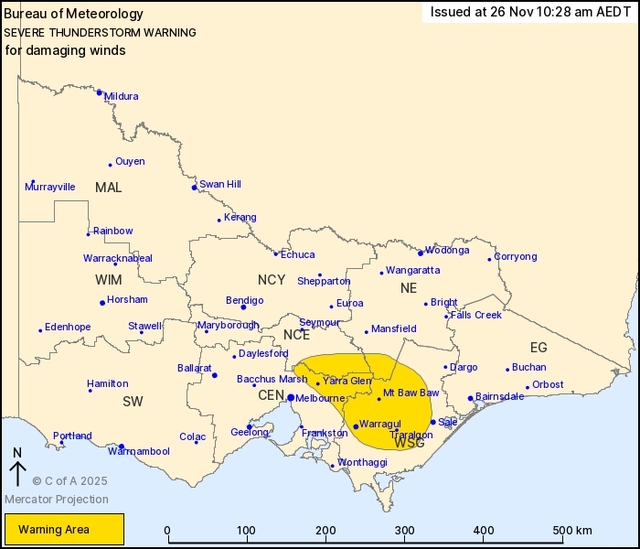VCAT has reprimanded a Warburton nurse who did not maintain their professional indemnity insurance (PII) arrangements and unwittingly failed to declare that fact to the appropriate regulator, the Nursing & Midwifery Board of Australia (NMBA), between 2013 and 2017.
PII must be in place for all enrolled nurses, registered nurses and midwives, as without arrangements, patients can be at risk of not having any legal recourse to claim against a practising nurse or midwife.
VCAT members N Campbell, P Barry and M Bylhouwer presided over the case and only issued a reprimand as punishment for Belinda Lloyd as she is no longer registered nor intending to re-register as a nurse.
Ms Lloyd had been qualified and registered as a nurse since 1987 and had been a credentialed mental health nurse since 2010. In 2012, Ms Lloyd started a private practice as a mental health nurse in Warburton, established and managed a community health and wellness centre in Warburton from 2013 to 2015 and was the only point of access for mental health nursing services through the Commonwealth Government Access to Allied Psychological Services (ATAPS) program in the Warburton area while also working two days a week at a community health service from February 2016.
In late May 2013, the PII arrangements Ms Lloyd held through the Health and Community Services Union lapsed. Her work at the community health service from 2016 was covered by her employer, but her private practice work was not and hadn’t been since it lapsed in 2013.
NMBA Chair Adjunct Professor Veronica Casey AM said it is important that all nurses have the appropriate insurance measures in place.
“Appropriate professional indemnity insurance arrangements are mandatory and keep practitioners and the public safe if an issue arises,” she said.
“Being able to call yourself a nurse in Australia means something. When your name appears on the register of practitioners, the public should feel safe that you meet all the necessary registration requirements and are competent to practise.,”
“These requirements include a declaration nurses must make each year when renewing their registration that they meet the Boards professional indemnity insurance requirements.”
It wasn’t until May 2014 that Ms Lloyd requested a quote for professional indemnity insurance with her insurance broker which indicated that her currently held public liability insurance did not cover PII, with the VCAT decision detailing she found the advice she received was ‘vague’ and the policy regarding PII ‘unambiguous’.
Ms Lloyd declared on yearly registration renewals each year in May between 2013 and 2017 that she practiced in accordance with the PII arrangements registration standards, thus ‘providing false and/or misleading information to the regulator’.
On 20 June 2017, Ms Lloyd visited her insurance broker regarding a potential PII claim, where she realised she did not have the appropriate coverage.
On the same, Ms Lloyd herself verbally reported to the NMBA that she had failed to hold PII arrangements for just over four years and ceased private practise, which she consolidated in writing on 28 June 2017. The NMBA did not open an investigation until 5 October that year and did not refer the matter to VCAT until 11 May 2022.
Ms Lloyd said she thinks it was just unfortunate that at the time that she mistrusted the advice she was given.
“I have since spoken with the brokers and realised that my mistrust and unclarity, was no fault of theirs, the insurance company’s (not the brokers’) documentation and wording of the certificate of currency was the primary source of the confusion and mistrust,” she said.
“All in all, I made a mistake in my professional governance and it’s had long and brutal consequences, thankfully almost solely for myself alone. I wouldn’t wish the experience on anyone. I’ve paid a high price for my mistake in the context of giving much to my community and the profession.”
In filing the Statement of Agreed Facts, Findings and Determinations (SAFFD) in April 2023, the NMBA initially proposed that Ms Lloyd should have also had her registration suspended for six weeks as part of her punishment.
In supplementary submissions afterwards, also proposed conditions that would require Ms Lloyd to provide the NMBA with a copy of her certificate of currency for professional indemnity insurance each year, provide the NMBA with the name of her insurance and acknowledgment that the NMBA may contact the insurer for verification.
This was a ‘departure’ from the agreed determination, which the NMBA argued was for the ‘protection of the public’ though VCAT felt as though the need for the departure and conditions was not satisfactorily explained.
The NMBA believed Ms Lloyd was still registered during the hearing, though Ms Lloyd indicated she had let her registration lapse. The hearing was stood down for the NMBA to make enquiries and upon confirmation and recommencing, the only determination the NMBA sought that was left available was to reprimand Ms Lloyd.
In the determination, the VCAT members took into account the significant delay in the investigation, the nature and seriousness of Ms Lloyd’s conduct, general and specific deterrents for those in the profession, protection of the public and Ms Lloyd’s character, remorse and guilty plea.
The determination declares that the delay has visited very significant unfairness on Ms Lloyd, particularly in relation to the damage to her career.
“In response to questioning from the Tribunal, the Board was unable to give any explanation for this exceptionally long period in what was a somewhat straightforward, although serious, case where a practitioner self-reported and largely accepted the proven conduct occurred, the characterisation of the conduct and the determination that should be made,” it reads.
“On her (Ms Lloyd’s) evidence, which we accept, the delay has led her to leave the profession, most likely permanently. While the investigation has been ongoing, Ms Lloyd has been unable to obtain professional indemnity insurance to practice on her own account,”
“Ms Lloyd has shown genuine and clear insight and remorse. The Tribunal accepts that the conduct was not intentional.”







